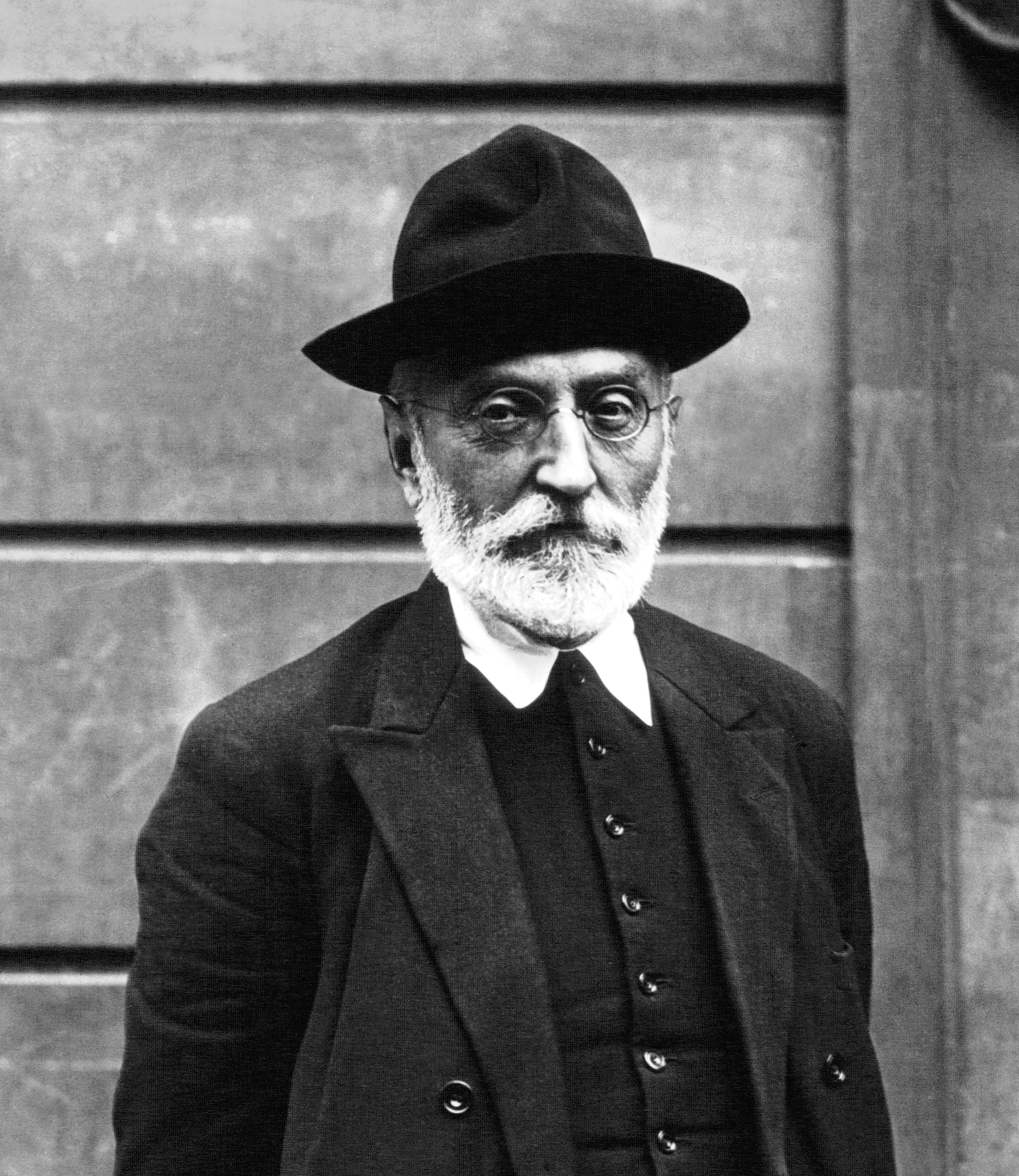Miguel de Unamuno słynne cytaty
Miguel de Unamuno cytaty
O poczuciu tragiczności życia wśród ludzi i wśród narodów
Źródło: Mikołaj Kozakiewicz, O miłości prawie wszystko, LSW, Warszawa 1982, s. 139.
„Wiara, która nie wątpi jest martwą wiarą.”
Fe que no duda es fe muerta. (hiszp.)
Źródło: Tu mano es mi destino pod red. Cirilo Flóreza Miguela
„Nie zadawaj się z osobami poważnymi, bo kto nigdy nie mówi głupstw, jest głupi od stóp do głów.”
Źródło: Antonio Vasquez, Małżeństwo na nowe czasy
O poczuciu tragiczności życia wśród ludzi i wśród narodów
O poczuciu tragiczności życia wśród ludzi i wśród narodów
Miguel de Unamuno: Cytaty po angielsku
“Love is a contradiction if there is no God.”
The Tragic Sense of Life (1913), VII : Love, Suffering, Pity
Credo quia absurdam — I believe because it is absurd
The Tragic Sense of Life (1913), Conclusion : Don Quixote in the Contemporary European Tragi-Comedy
The Tragic Sense of Life (1913), Conclusion : Don Quixote in the Contemporary European Tragi-Comedy
The Tragic Sense of Life (1913), X : Religion, the Mythology of the Beyond and the Apocatastasis
The Tragic Sense of Life (1913), V : The Rationalist Dissolution
The Tragic Sense of Life (1913), Conclusion : Don Quixote in the Contemporary European Tragi-Comedy
“Reason perhaps teaches certain bourgeois virtues, but it does not make either heroes or saints.”
The Tragic Sense of Life (1913), XI : The Practical Problem
The Tragic Sense of Life (1913), III : The Hunger of Immortality
“Faith which does not doubt is dead faith.”
Fe que no duda es fe muerta.
La Agonía del Cristianismo (The Agony of Christianity) (1931)
The Tragic Sense of Life (1913), VI : In the Depths of the Abyss
The Tragic Sense of Life (1913), XI : The Practical Problem
The Tragic Sense of Life (1913), VIII : From God to God
The Tragic Sense of Life (1913), X : Religion, the Mythology of the Beyond and the Apocatastasis
The Tragic Sense of Life (1913), VIII : From God to God
The Tragic Sense of Life (1913), VIII : From God to God
The Tragic Sense of Life (1913), VII : Love, Suffering, Pity
The Tragic Sense of Life (1913), Conclusion : Don Quixote in the Contemporary European Tragi-Comedy
The Tragic Sense of Life (1913), III : The Hunger of Immortality
The Tragic Sense of Life (1913), IV : The Essence of Catholicism
The Tragic Sense of Life (1913), VII : Love, Suffering, Pity
The Tragic Sense of Life (1913), VII : Love, Suffering, Pity
The Tragic Sense of Life (1913), IV : The Essence of Catholicism
The Tragic Sense of Life (1913), VIII : From God to God
Tres novelas ejemplares y un prólogo [Three Exemplary Novels and a Prologue] (1920); Two Mothers
The Tragic Sense of Life (1913), X : Religion, the Mythology of the Beyond and the Apocatastasis
The Tragic Sense of Life (1913), VIII : From God to God
The Tragic Sense of Life (1913), VII : Love, Suffering, Pity
Vanidad del Mundo, cap. xxi.
The Tragic Sense of Life (1913), Conclusion : Don Quixote in the Contemporary European Tragi-Comedy
“Use harms and even destroys beauty. The noblest function of an object is to be contemplated.”
El use estropea y hasta destruye toda belleza. La función más noble de los objetos es la de ser contemplados.
Niebla [Mist] (1914)
